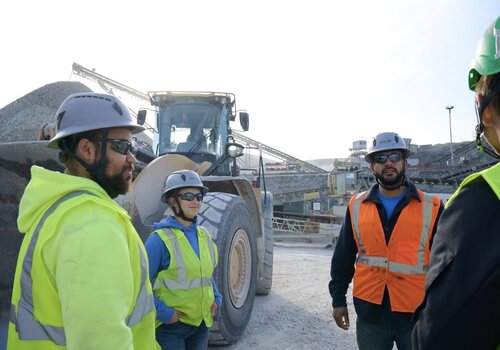Overseeing multiple construction projects at once can feel like a high-stakes balancing act. You’re keeping an eye on budgets, timelines, crew coordination, materials and countless other moving parts. One misstep and delays or unexpected costs start piling up. Staying organized is the key to making everything run smoothly.
Whether you’re a contractor, project manager or business owner, implementing the right systems and habits can save time, reduce stress and help ensure successful project completion. Let's break down the best strategies for staying on top of multiple projects.
1. USE A PROJECT MANAGEMENT SYSTEM
Trying to track everything in your head—or relying on scattered spreadsheets—is a recipe for chaos. Investing in a reliable project management system can make a huge difference. Digital platforms help you:
- Track project deadlines and milestones
- Assign tasks to team members
- Store important documents and communications in one place
Choose a system that works for your workflow and train your team to use it consistently. It will streamline operations and keep everyone on the same page.
2. STANDARDIZE PROCESSES
When you're juggling multiple projects, consistency can save you valuable time and prevent mistakes. Having standardized processes for common tasks ensures everyone on your team follows the same steps. This might include:
- Templates for RFIs (Requests for Information)
- Change order forms
- Checklists for site inspections and safety protocols
- Procurement procedures
Standardization reduces the chances of miscommunication and keeps work flowing efficiently across all projects.
3. PRIORITIZE COMMUNICATION
One of the biggest hurdles in construction project management is poor communication. Misunderstandings between crews, subcontractors or clients can lead to delays and costly mistakes. Keeping everyone informed is essential.
Consider these communication best practices:
- Hold weekly check-in meetings to review progress and flag potential issues.
- Use a shared messaging platform like Slack or WhatsApp for quick updates between teams.
- Set clear expectations for response times when handling RFIs, approvals and urgent issues.
Making communication a priority helps prevent last-minute surprises and keeps projects moving forward.
4. PLAN AHEAD—BUT STAY FLEXIBLE
Construction is unpredictable. Weather delays, supply chain disruptions, unexpected site conditions—something is always bound to throw a wrench in your plans. While it's essential to have a structured project schedule, you also need to leave room for flexibility.
Here’s how to balance planning and adaptability:
- Find areas where you can add time for a buffer in case of delays.
- Identify backup suppliers in case materials run short.
- Train your team to react quickly to unexpected changes.
A rigid plan will break under pressure—a flexible one will allow you to pivot and keep work moving.
5. DELEGATE EFFECTIVELY
Taking on too much personally will only lead to burnout. Trusting your team and delegating responsibilities allows you to focus on high-level decision-making. Clearly assign roles so that:
- Site supervisors oversee daily operations
- Office staff handle paperwork and scheduling
- Experienced crew members help troubleshoot issues
Empowering your team to take ownership helps projects run more smoothly while giving you space to focus on strategic oversight.
6. KEEP FINANCES IN CHECK
Financial mismanagement can quickly derail multiple projects. Construction budgets can be complex, with fluctuating material costs, labor expenses and unexpected charges. Staying on top of finances requires discipline.
Implement best practices for financial tracking:
- Use accounting software to monitor expenses in real time.
- Ensure timely payments to subcontractors and suppliers.
- Keep a cash flow reserve to avoid sudden financial strain.
The more visibility you have into your finances, the better equipped you'll be to prevent cost overruns.
7. CONDUCT REGULAR REVIEWS
Once a project wraps up, take the time to review performance. Ask questions like:
- Did any schedules run behind? Why?
- Were there unexpected costs? How could they have been avoided?
- Did communication breakdowns occur?
Learning from past projects helps refine processes and improve efficiency on future ones.
Want to take your project management to the next level? Explore these expert resources and share them with your crew or leadership team:
🔗 AI and Machine Learning Applications in Construction for 2025 and Beyond
🔗 Handling Supply Chain Challenges: 10 Tips for Project Managers
🔗 Cybersecurity in Construction: Protecting Sensitive Project Data
Forward this to your team or bookmark it for your next project kickoff.
Photo credit: SHUTTERSTOCK.COM/SCULPIES












